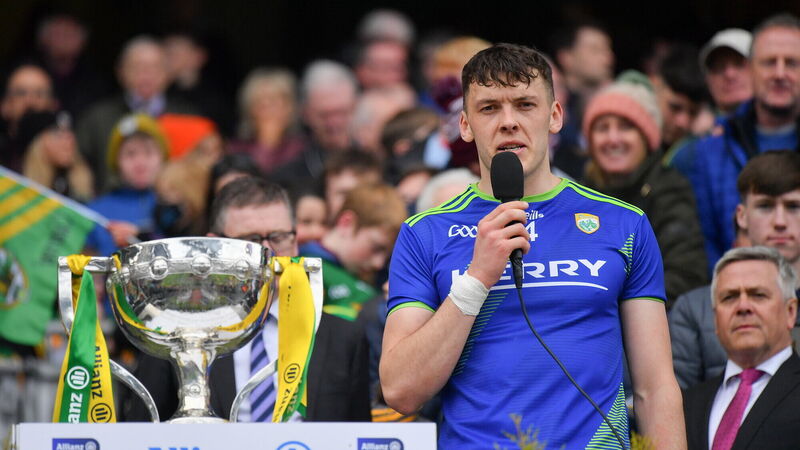John Fogarty: GAA forget everybody should belong

David Clifford’s acceptance speech after Kerry’s league final win over Mayo was as polished as his performance.
In the absence of a minute’s silence for Red Óg Murphy at last Sunday’s Division 1 and 2 finals in Croke Park, Kerry captain David Clifford’s heartfelt words about the late Sligo and DCU star were even more poignant.
Clifford’s acceptance speech was as polished as his performance: Short enough to reflect what was another league title for Kerry and succinct enough to send a message to his team-mates. “This is only the start of it,” he declared to them. “So, it’s time to build on it from here.”








